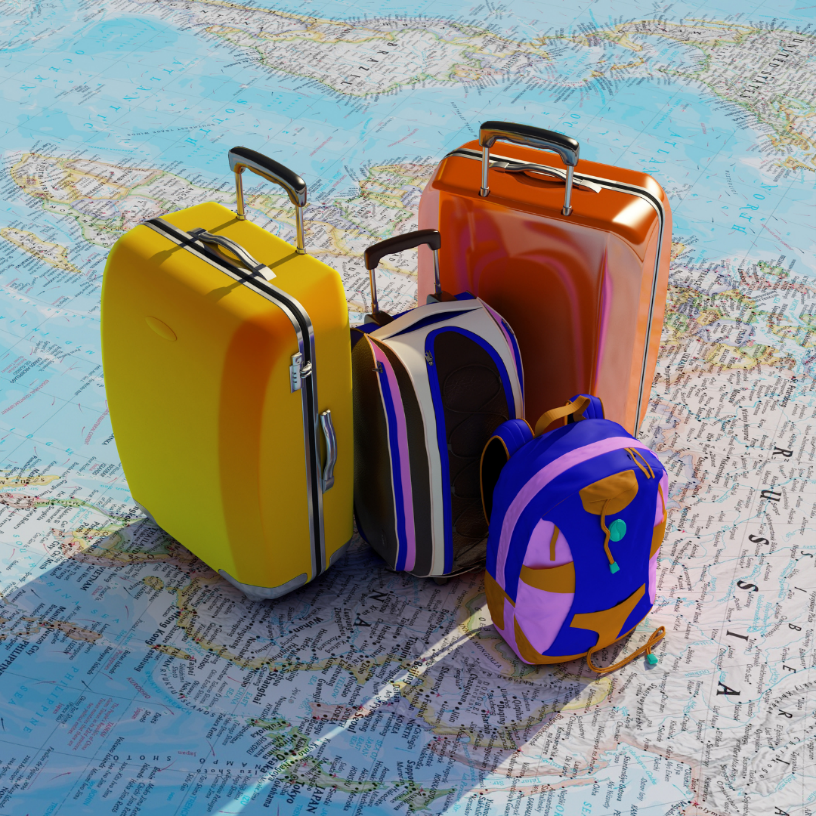
- Our Services
Technical Translations
Certified Translations
Specialisations
- Languages
- Rates
- References
- About Us
- Methods

By providing professional translation and interpretation services, tourists can communicate effectively with locals and get the most out of their travel experience.

Lishia Velavan
Customer Success Executive
The tourism industry is one of the largest and fastest-growing industries in the world. According to the United Nations World Tourism Organization (UNWTO), international tourist arrivals reached 1.5 billion in 2019, and the industry accounted for 10.4% of global GDP. However, language barriers can be a significant challenge for both tourists and businesses operating within the tourism industry.
With tourists coming from different parts of the world, speaking different languages, communication becomes a critical issue. Lack of communication can lead to misunderstandings, confusion, and in some cases, even conflicts. It can also negatively impact the overall travel experience of tourists, which can, in turn, affect the reputation of tourism service providers.
Tourism is all about exploring new cultures, experiencing new things, and creating memories. However, language barriers can make this experience frustrating and difficult. Tourists may face difficulties in finding their way around, ordering food, or even asking for basic information. This can lead to frustration and a negative impression of the destination.
Moreover, language barriers can lead to a lack of cultural understanding. Tourists may not be able to fully appreciate the culture and traditions of the destination if they cannot communicate effectively with locals. This can lead to a missed opportunity for both tourists and the local community to learn from each other and develop a better understanding of different cultures.
Overall, language barriers are a significant issue in the tourism industry and addressing them is essential for creating a positive and memorable travel experience for tourists.
Translation services can play a vital role in addressing language barriers in the tourism industry. By providing professional translation and interpretation services, tourists can communicate effectively with locals and get the most out of their travel experience. Translation services can also help to bridge the gap between different cultures by providing accurate and culturally sensitive translations.
In addition, translation services can help tourism service providers to cater to a wider audience. By offering information in multiple languages, service providers can attract more tourists and provide a better experience for their guests. This can lead to increased customer satisfaction and loyalty, which can ultimately benefit the tourism industry as a whole.
Tourists may not be able to read warning signs, instructions or understand verbal directions, and this can lead to serious accidents or injuries. For example, a tourist who does not understand a warning sign on a hiking trail may unknowingly venture into an area that is dangerous and put themselves at risk. Similarly, if a non-native speaker is unable to understand emergency instructions from hotel staff or first responders, they may not be able to take the necessary actions to protect themselves and others. In these situations, translation services play a crucial role in ensuring that tourists are aware of safety measures, precautions, and potential hazards.
Language barriers can also impact the safety of tourists during transportation. When visiting a foreign country, tourists may rely on public transportation, taxis, or rental cars to move around. However, if they are unable to communicate with the driver or read road signs, they may not be aware of traffic rules, speed limits, or directions. This can result in accidents, traffic violations, and even legal issues. Professional translation services can help overcome these language barriers and ensure that tourists have a safe and hassle-free experience while traveling.
Another safety concern is related to health and medical emergencies. Tourists may experience sudden health issues or require medical attention during their trip, and if they are unable to communicate their symptoms, medical history, and allergies to healthcare professionals, they may receive inadequate treatment or even incorrect medication. Furthermore, medical terminology and procedures may be unfamiliar to tourists who do not speak the local language, making it challenging for them to understand their medical condition and treatment options. Translation services can help bridge this gap by providing accurate and timely translations of medical documents, instructions, and conversations between patients and healthcare professionals.
In addition to safety concerns, language barriers can also have a significant impact on the economic growth of the tourism industry. Without effective communication, tourists may not be able to fully understand or appreciate the local culture, resulting in missed opportunities for cultural experiences and purchases. This can also lead to negative reviews and a decrease in tourism for the destination.
Furthermore, language barriers can hinder business opportunities for local companies in the tourism industry. Tourists may be hesitant to engage with local businesses if they are unable to communicate effectively, resulting in lost revenue for these businesses. However, by providing translation services, local businesses can overcome these language barriers and effectively communicate with their customers, leading to increased revenue and economic growth for the industry.
Additionally, the availability of translation services can also attract a more diverse range of tourists to a destination. By providing translation services in multiple languages, destinations can appeal to a wider range of visitors who may not have considered visiting otherwise. This can lead to increased revenue for the tourism industry and the local economy as a whole.